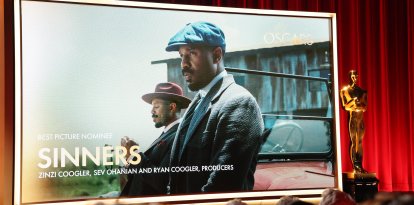Bad Bunny stars on the first Spanish-language cover of 'Time' magazine
The publication assures that the Puerto Rican singer is a "legitimate heir to Frank Sinatra, Michael Jackson or Beyoncé."

(Cordon Press)
Bad Bunny can add one more achievement to his long list of successes: starring on the first Spanish-language cover of Time magazine. The Puerto Rican singer is the visible face of the publication's cover, for the first time in its 100-year history, with a Spanish-language title:
Entitled El Mundo de Bad Bunny (translated as The World of Bud Bunny), the article, written by Andrew R. Chow and Mariah Espada, reviews the superstar's musical career. Bad Bunny, whose real name is Benito Antonio Martínez Ocasio, achieved success by performing the music he thinks is right for him. This much is clear to him: "I’m not going to do something else for you to like it," he stated emphatically during his interview with Time magazine.
Bad Bunny only performs his songs in Spanish.
That may be why he writes all his songs in Spanish. According to the publication, he has not even tried to perform a song in Spanglish. And his formula doesn't seem to fail. Since his rise to fame seven years ago, the singer is considered "a legitimate heir to Frank Sinatra, Michael Jackson, or Beyoncé."
A title he earns after accumulating a multitude of achievements in his career, ranging from being the most streamed artist on Spotify to being the first Hispanic artist to headline Coachella. However, he says, being a superstar is not his priority:
Despite assuring that he does not seek fame, he also recognizes that, although he often says he does not mind not staying on top, is not something he can say with certainty: "I always say no, but I think I lie. Because if there is someone who made a cabr*** song, I am going to make a more cabr*** song."
The artist also shares his opinion on whether belonging to a certain race or having a certain skin color can affect whether a reggaeton artist can achieve success. He questions this and does not believe it affects things at all:

























